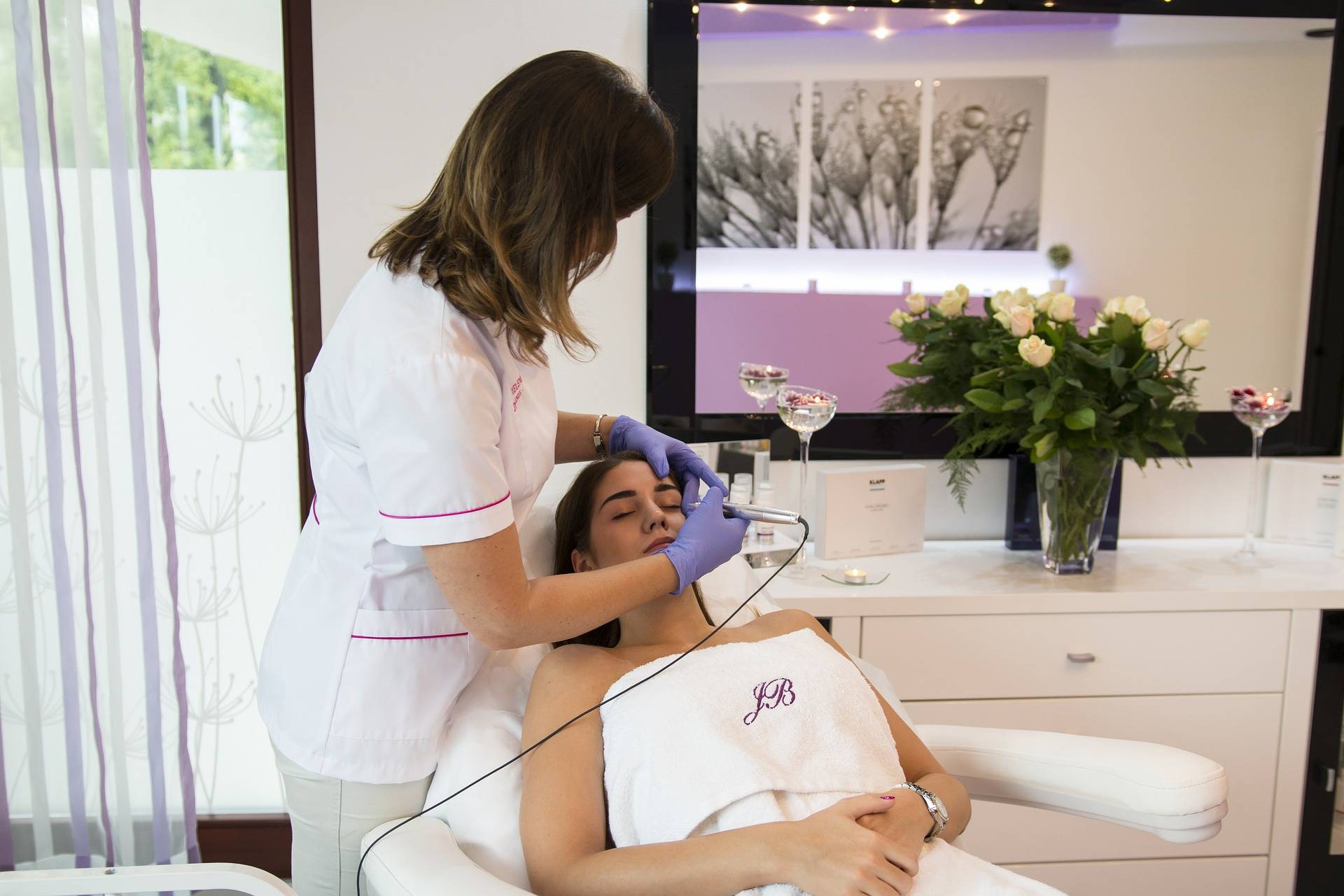The Ultimate Guide to Anti-Aging Skincare
Aging is a natural and beautiful process, but who says we can’t approach it with grace and confidence? Taking care of your skin not only helps you maintain a youthful appearance but also boosts your overall health and self-esteem. In this ultimate guide, we’ll explore everything you need to know about anti-aging skincare—from understanding the aging process to crafting a personalized routine that works for you.

What Causes Skin Aging?
To effectively combat the signs of aging, it’s essential to understand why they occur in the first place. Skin aging is influenced by two main factors:
- Intrinsic Aging: This is the natural aging process that happens over time, largely determined by genetics. As we age, our bodies produce less collagen and elastin, proteins responsible for keeping skin firm and supple. Additionally, cell turnover slows down, leading to thinner, drier, and less elastic skin.
- Extrinsic Aging: These are external factors that accelerate the aging process. The primary culprits include:
- Sun exposure: UV radiation breaks down collagen and elastin, causing wrinkles, fine lines, and age spots.
- Pollution: Environmental toxins damage the skin’s barrier and contribute to oxidative stress.
- Lifestyle habits: Smoking, excessive alcohol consumption, poor diet, and inadequate sleep can all take a toll on your skin.
- Stress: Chronic stress triggers inflammation and weakens your skin’s ability to repair itself.
Building Your Anti-Aging Skincare Routine
A well-thought-out skincare routine is your first line of defense against aging. Here’s a step-by-step guide to crafting a regimen that works:
1. Cleansing
Start with a gentle cleanser to remove dirt, makeup, and pollutants from your skin. Avoid harsh soaps that strip natural oils, as dry skin is more prone to wrinkles. Look for hydrating cleansers with ingredients like glycerin or ceramides.
- Pro Tip: Double cleanse at night if you wear makeup or sunscreen. Use an oil-based cleanser first, followed by a water-based one.
2. Exfoliation
Regular exfoliation helps remove dead skin cells, promoting a brighter and smoother complexion. Chemical exfoliants like AHAs (glycolic acid, lactic acid) and BHAs (salicylic acid) are gentler and more effective than physical scrubs.
- Frequency: 1-3 times a week, depending on your skin’s sensitivity.
- Caution: Over-exfoliating can damage the skin barrier, so listen to your skin and scale back if needed.
3. Hydration with Toners or Essences
After cleansing, apply a hydrating toner or essence to replenish moisture and prepare your skin for subsequent products. Look for ingredients like hyaluronic acid, glycerin, or aloe vera.
4. Targeted Treatments (Serums)
Serums are concentrated formulas designed to address specific concerns like wrinkles, dark spots, or loss of firmness. For anti-aging, prioritize these powerhouse ingredients:
- Retinoids (Vitamin A): Stimulate collagen production and enhance cell turnover. Start with retinol if you’re new to this ingredient, as it’s gentler.
- Vitamin C: A potent antioxidant that brightens the skin and protects against free radicals.
- Peptides: Help boost collagen and improve skin elasticity.
- Niacinamide: Reduces inflammation, evens out skin tone, and strengthens the skin barrier.
5. Moisturizing
Moisturizers lock in hydration, keeping your skin plump and healthy. Look for products that suit your skin type:
- Dry Skin: Choose rich creams with ingredients like shea butter or squalane.
- Oily Skin: Opt for lightweight, gel-based formulas with non-comedogenic oils.
- All Skin Types: Ceramides and hyaluronic acid are universally beneficial.
6. Sun Protection
Sunscreen is your ultimate anti-aging weapon. Apply a broad-spectrum SPF 30 or higher every day, regardless of the weather. Reapply every two hours when outdoors.
- Bonus Tip: Opt for mineral sunscreens (zinc oxide or titanium dioxide) if you have sensitive skin.

Additional Anti-Aging Practices
Skincare products alone won’t do all the heavy lifting. Incorporating healthy habits into your daily routine can amplify your results:
1. Stay Hydrated
Drink plenty of water to keep your skin hydrated from within. Dehydration can make fine lines and wrinkles more noticeable.
2. Eat a Skin-Friendly Diet
Load up on foods rich in antioxidants, healthy fats, and vitamins. Some anti-aging superfoods include:
- Berries (antioxidants)
- Fatty fish like salmon (omega-3s)
- Leafy greens (vitamin C and iron)
- Nuts and seeds (vitamin E)
3. Get Quality Sleep
Your skin repairs itself while you sleep, making rest essential for anti-aging. Aim for 7-9 hours of quality sleep each night.
- Tip: Sleep on your back to avoid sleep lines and use a silk pillowcase to reduce friction.
4. Manage Stress
Chronic stress accelerates aging by increasing cortisol levels, which break down collagen. Practice relaxation techniques like yoga, meditation, or deep breathing.
5. Avoid Smoking and Excessive Alcohol
Smoking reduces blood flow to the skin and depletes essential nutrients, while alcohol dehydrates and damages the skin barrier.
Professional Treatments for Aging Skin
Sometimes, a little extra help from a professional can make a world of difference. Here are some popular anti-aging treatments:
1. Chemical Peels
Chemical peels exfoliate deeper layers of skin, improving texture, reducing pigmentation, and stimulating collagen production.
2. Microneedling
This minimally invasive procedure uses tiny needles to stimulate collagen and elastin production, improving skin texture and firmness.
3. Laser Therapy
Laser treatments target specific concerns like wrinkles, age spots, or redness by promoting skin regeneration.
4. Botox and Fillers
Botox relaxes facial muscles to reduce wrinkles, while fillers restore lost volume and smooth out fine lines.
5. Facials and LED Therapy
Regular facials and light-based therapies can improve circulation, hydrate the skin, and reduce inflammation.
Myths About Anti-Aging Skincare
Let’s bust some common misconceptions:
- Myth: Expensive products work better.
- Truth: Price doesn’t always indicate quality. Focus on ingredients and formulations instead.
- Myth: You don’t need sunscreen indoors.
- Truth: UV rays can penetrate windows, so daily sunscreen is non-negotiable.
- Myth: Only older people need anti-aging products.
- Truth: Prevention is better than cure. Start incorporating anti-aging elements in your late 20s or early 30s.
- Myth: Natural remedies are always better.
- Truth: While some natural ingredients are effective, many lack scientific backing. Combine natural and clinical-grade products for the best results.
Tailoring Your Routine to Your Age
Anti-aging skincare isn’t one-size-fits-all. Adjust your routine as you age:
- 20s: Focus on prevention with sunscreen and a basic skincare routine.
- 30s: Introduce retinol and antioxidants to address early signs of aging.
- 40s and Beyond: Opt for richer moisturizers, peptides, and professional treatments to combat advanced aging.
Final Thoughts
The journey to youthful, glowing skin is a marathon, not a sprint. Consistency, patience, and a holistic approach are key to achieving long-lasting results. By understanding your skin’s needs and using scientifically backed products, you can age gracefully and confidently. Remember, aging is a privilege, and taking care of your skin is an act of self-love. Cheers to looking and feeling your best at any age!
